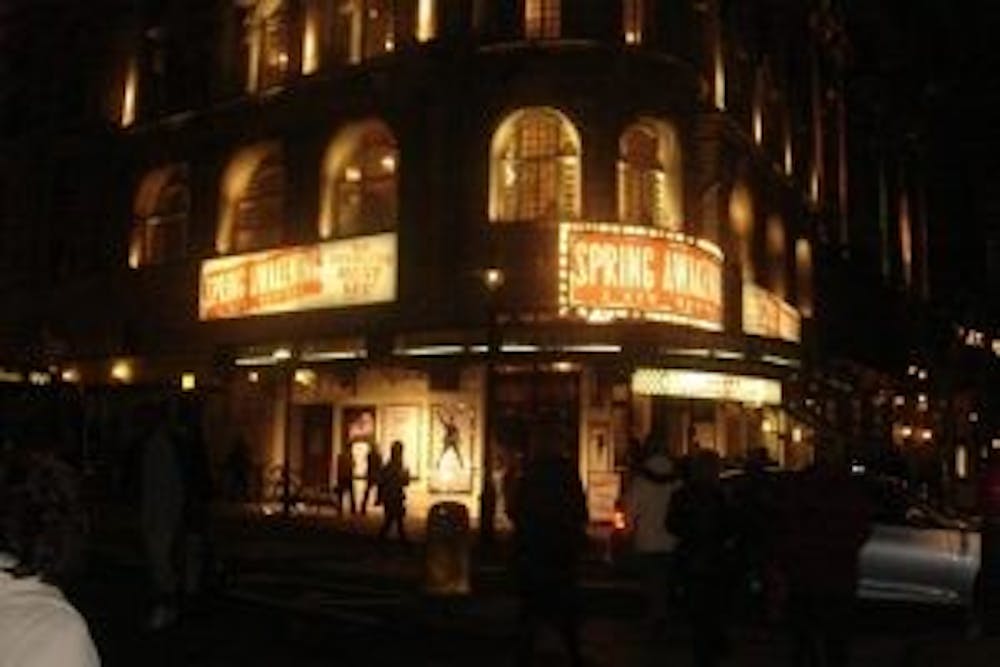As the days go on, it seems more and more likely that the Trump administration will eliminate the National Endowment for the Arts (NEA) in order to divert the money elsewhere. Regardless of whether or not this actually happens, the fact that the Office of the President would put forth such an idea is extraordinarily alarming.
The NEA is certainly not a waste of money. First of all, the money spent on the NEA is such a miniscule part of total government spending that eliminating the program seems more hateful than productive.
Additionally, the NEA directly and indirectly creates a more colorful and cultured America. They offer grants to programs that create works of art defined as dance, literature, theater, visual arts and so much more. Art permeates our society in a grander scale than many conservative thinkers seem to think it does.
Money from the NEA might help fund the after school drama program that a future Academy Award winner attends everyday. It could help a summer camp buy the art supplies that might lead the next great artist to his paintbrush.
The fact that the NEA is under threat of attack is offensive and deeply disturbing. It turns my involvement in college theater into an act of daily resistance. No, the Barnstormers is not funded by the government, but we are funded by an institution that has been known to follow suit when the government enacts certain harmful policies (see: the University’s investment in fossil fuels).
If the NEA is eliminated, I worry that schools like Hopkins might allocate less and less money to arts groups. When the highest governmental body says something is not important, other institutions might follow suit. And that means less money and fewer resources given to theater groups, dance groups, a cappella groups and all of our incredible arts groups and programs.
When thousands of people protested the Muslim immigration ban at airports across the country, I remember thinking I wasn’t doing my part. I couldn’t go to BWI to lend my body, my voice and my support because I spent my weekend interviewing directors for the Barnstormers’ musical, Spring Awakening. I remember feeling like I should be doing something to show Trump and his supporters that I won’t back down.
But then I realized: My determination to produce a musical this semester is, in itself, an act of dissent. When I make theater and art the most important thing in my life, I am protesting. I am resisting. I send the message that I think art is important to this country. And I know I’m not the only one who feels that way.
I guess now I feel a certain responsibility in my role as producer. I have to put on a good show, not only for the sake of the incredible actors and technicians involved, but also because I’m looking to prove something. Musical theater is not a waste of my time, my actors’ time or my designers’ time. And, I promise, it’s not a waste of any audience member’s time either.
What can you get out of musical theater as a member of the audience? It probably doesn’t seem obvious at first, because the role of audience member is inherently passive. You sit still for two hours and watch a show. Maybe you recognize how much fun it is for the people who threw that together, but most likely you don’t realize how much hard work has gone into the production and that it might be the best and most important thing for so many people.
But even if you know nothing about theater, even if you just wandered into the seat, even if you proclaim that you “hate musicals,” there’s something in the theater for everyone. Plenty of shows will leave you with incredible insight about class systems or gender roles or politics.
Other shows might just brighten your day. And maybe once in a while you will see one and walk away with nothing, but I tend to think those shows are a rarity.
I’ll leave you with this: Participate in and consume art. Consume it voraciously. Read books and watch plays and go to museums and prove to the president that art is important to this country and that art is not a waste of money.
Gillian Lelchuk is a junior Writing Seminars and mathematics double major from Los Alamitos, Calif. She is the Opinions Editor.

















